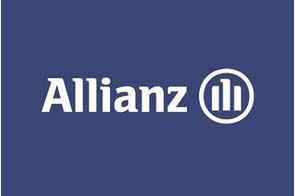Latest News
Allianz identifies wildfires as a growing global threat

News Highlight
The report says the rapid spread of wildfires poses substantial risks across various sectors and regions around the globe.
The frequency, severity, and geographic occurrence of wildfires have increased significantly in recent years, fuelled by climate change, human activities, and evolving land use patterns, according to the new Emerging Risk Trend Talk report from Allianz Commercial.
The report says the rapid spread of wildfires poses substantial risks across various sectors and regions around the globe.
According to the report, the western US, along with western Canada, southern and eastern Australia, and southern Europe are the geographical zones most exposed to wildfires. However, such fires are also now occurring in locations not previously regarded as a significant risk, including forests in northern regions of Canada, Scandinavia, and Russia. South Korea suffered the deadliest wildfire outbreak in its history during March and April 2025.
“Wildfire seasons are starting earlier and lasting longer, which impacts on the ability to share firefighting resources within regions,” says Allianz. “Catastrophic wildfires are becoming larger and more frequent. The impacts of the worst wildfires in the last decade in terms of property damage and fatalities have been significantly greater than for at least 50 to 100 years in some regions.”
According to the report, climate change is elevating risks by increasing fuel loads, drying fuels, strengthening winds, boosting lightning activity, and promoting invasive flammable species. The 10 warmest years since 1850 have all occurred in the past decade (2015-2024), with 2024 being the hottest on record.
Any sector can be impacted by a wildfire but utilities and energy, real estate and construction, and agriculture and transportation are among the sectors which face the most significant exposures to damage and business interruption. Regulatory challenges and litigation related to wildfire liabilities are also on the rise, necessitating the need for robust risk management strategies, the report notes.
Related News
Latest Blogs
- What is most important for Nigeria in 2026
- Restoring asset declaration as a tool of public accountability
- Tackling antibiotic resistance through safer food systems
- Big government, little governance
- What will matter in Nigeria in 2026
Most Popular News
- NDIC pledges support towards financial system stability
- Artificial intelligence can help to reduce youth unemployment in Africa – ...
- FRC Chairman commends NDIC for prompt remittance of operating surplus
- Pan-African nonprofit appoints Newman as Advisory and Executive Boards Chair
- Abebe Aemro Selassie to retire as Director of African Department at IMF
- UN adopts new consumer product safety principles









